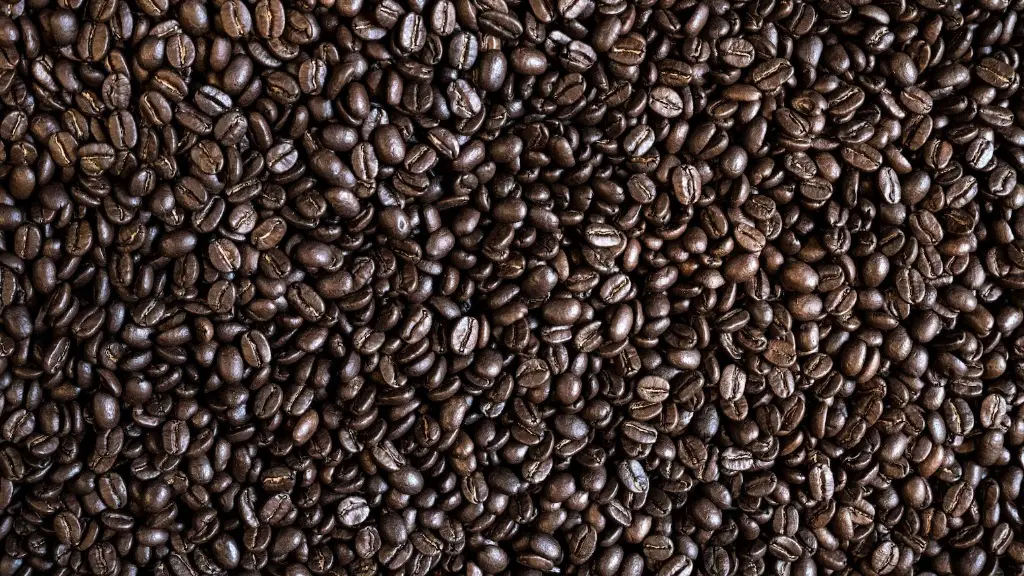Is it ok to Drink Decaf Coffee Everyday
Decaf coffee is an option for those looking for an alternative to the caffeine-filled variety. For some, this drink has become a regular staple of life. But is decaf really healthier than the full-on caffeine version? And is it even ok to drink decaf coffee every day or will it still have negative consequences?
Roughly 97% of the caffeine is removed during the decaffeination process, but small amounts can still remain in the final product. Given this, the amount of caffeine in a cup of decaffeinated coffee could range from nearly 0 to 5 mg – which is about 8 to 10% of the amount typically found in regular coffee.
While drinking decaffeinated coffee does not provide the surge of energy that regular coffee does, it can be beneficial. For example, decaf coffee is a source of healthy antioxidants, primarily polyphenols, which can protect against free radicals linked to aging and diseases such as cancer. It is also a source of daily fiber and essential minerals such as magnesium and potassium.
Experts say that, generally speaking, it is safe to drink decaffeinated coffee everyday in moderation. In fact, some studies have suggested that there may be benefits to drinking decaffeinated coffee in the long run. However, it is important to be aware of potential drawbacks. For example, some decaffeinated coffee can be higher in acrylamide, a potentially carcinogenic compound that forms as a result of the roasting, brewing and decaffeination process.
Studies suggest that the human body can only process so much caffeine and that regular consumption of decaf can actually impair the ability of the body to metabolize caffeine. This means drinking too much decaf could lead to side effects such as insomnia, nervousness, and headaches. Furthermore, some people have reported experiencing abdominal discomfort when consuming decaf.
Ultimately, it is up to the individual to decide whether or to not to drink decaffeinated coffee every day. While it may provide some health benefits, it also has the potential for negative consequences. It is important for each person to assess their own needs and consider the available information before deciding.
Decaffeination Methods and their Effectiveness
The coffee’s caffeine content generally depends on the method used to remove the caffeine. The four main methods used to decaffeinate coffee are water-based, solvent-based, carbon dioxide-based, and supercritical carbon dioxide-based. Of the four methods, the supercritical carbon dioxide-based process is the most effective and widely used.
The supercritical process involves using a CO2 extraction system to remove the caffeine. The process involves exposing the green coffee beans to pressurized CO2, which then acts to extract the caffeine from the beans. This method can reduce the caffeine content to only 0.4 – 0.5%
The water-based process involves steaming the coffee beans in hot water and extracting the caffeine from the water. The extracted water is then passed through activated charcoal adsorbing the caffeine before being re-used. This process is less effective that the CO2-based process and can only reduce the caffeine content to about 0.8-1.2%.
The chemical-solvent process involves treating the green coffee beans with solvents such as methylene chloride or ethyl acetate to extract the caffeine. This method is effective, but is not widely used due to concerns over the potential health impacts of ingesting chemicals such as methylene chloride.
Lastly, the carbon dioxide-based process involves pressurizing spent coffee grounds with carbon dioxide to extract the caffeine molecules. This method is not as effective as the CO2-based process but can reduce the caffeine content to about 1-2%.
Alternatives to Decaf Coffee
If a person doesn’t want to drink decaf coffee, there are several alternatives. There are several herbal teas that don’t contain caffeine and have numerous health benefits. Among these are chamomile, ginger, peppermint, and rooibos. Additionally, there are several naturally caffeine-free teas such as white and green teas.
Other alternatives include matcha, yerba mate, chicory root coffee, or dandelion root coffee. Matcha is a powdered form of green tea and contains powerful antioxidants, while yerba mate is derived from the yerba mate plant, a shrub native to South America. Group root coffee is made from the roasted and ground root of the chicory tree, while dandelion root coffee is made from the roasted and ground root of the dandelion plant. Both of these beverages have a coffee-like flavor, but don’t contain caffeine.
There are also several other beverage options for those looking for a natural pick-me-up. These include kombucha and tulsi tea. The former is made from fermented tea and contains beneficial probiotics and enzymes in addition to naturally occurring B vitamins. Tulsi tea is an antioxidant-rich tea made from the leaves of the tulsi plant and is believed to be beneficial in reducing stress.
Organic vs Non-Organic Decaf Coffee
When it comes to decaf coffee, many people opt for organic as this guarantees that the beans have not been processed with potentially harmful chemicals. Organic coffee is grown without the use of pesticides and synthetic fertilizers. Therefore, drinking organic coffee is a way to avoid consuming any residual traces of these chemicals.
Organic decaffeination is a careful process that must be conducted slowly and at a low temperature. During the process, beans that have not been treated with chemicals may need to be steamed or soaked in water. On the other hand, non-organic preparations can involve the use of various chemical solvents such as methylene chloride and ethyl acetate, which leave residues behind and may even remain in the coffee. Despite this, some experts still consider non-organic and organic coffee to have the same health benefits.
Does Decaf Coffee Have the Same Nutrients as Regular Coffee?
The degree of impact that decaffeination has on coffee’s nutrient content has been the subject of numerous studies. Generally speaking, it has been found that decaffeination doesn’t eliminate coffee’s many vitamins and minerals, such as vitamin B2, B3, and B5, paslcyn hydroxycinnamates, and flavored oils.
Research also suggests that decaf coffee still retains many of the same polyphenols, antioxidant compounds that have been linked to a variety of health benefits including improved digestion, and reduced risk of cancer and heart disease. Furthermore, numerous studies have shown that polyphenol content in decaffeinated coffee is still approximately 8-10 times higher than in regular brewed coffee.
Does Decaf Coffee Help You Sleep Better?
While decaf coffee is usually viewed as the ultimate go-to drink before bed, it is not necessarily the best bet. While decaf does not contain caffeine, it still contains compounds that can interfere with sleep, such as theobromine, a stimulant found in chocolate.
Additionally, some coffees still retain traces of caffeine, albeit significantly lower amounts than regular coffee. The amount that is retained varies depending on the decaffeination method used, so it is important to check the label. Additionally, if a person is already sensitive to caffeine, consuming decaf coffee may still cause disruption.
Furthermore, due to its higher acidity, some people find that drinking decaf coffee before bed can make them heartburn, which can make it more difficult to get to sleep. For people looking for a more restful sleep, herbal teas are generally the best option.
The Effects of Decaf on Blood Pressure and Anxiety
Although decaf coffee does not contain the same levels of caffeine as regular coffee, it can still have subtle effects on certain hormones and neurotransmitters. Studies have shown that drinking decaf can raise cortisol levels, the stress hormone involved in regulating blood pressure and anxiety.
Furthermore, a number of studies have suggested that decaf can raise levels of the hormone epinephrine, also known as adrenaline. While epinephrine is necessary for many bodily functions, in excess amounts it can cause feelings of restlessness, anxiety and agitation.
Therefore, while decaffeinated coffee may be a healthier option than regular coffee, it is important to be aware of the potential impacts that this beverage may have on blood pressure and anxiety.
Decaf Coffee and Weight Loss
While decaf coffee is lower in calories than regular coffee, research suggests it may still have an effect on body weight. Studies have found that decaffeinated coffee can stimulate the release of certain gut hormones that could lead to increased feelings of fullness and reduction in food intake.
Additionally, research suggests that caffeine-free coffee can activate certain enzymes and increase thermogenesis, the body’s natural process of burning calories to produce energy. While the current research on this topic is still limited, it does suggest that decaffeinated coffee may still have a role to play in weight management.
Decaf Coffee and Diabetes Risk
While regular coffee can increase insulin sensitivity, research shows that the effects of decaffeinated coffee is more nuanced. Studies have found that decaf may have the opposite effect and can raise blood glucose due to its higher acidity content.
However, other studies have shown that decaffeinated coffee can lower fasting plasma glucose and insulin levels. Furthermore, a 2019 review found that decaffeinated coffee can lead to a significant reduction in HbA1c, a marker of long-term diabetes control.
Therefore, while the current research is still inconclusive, it does seem that decaffeinated coffee may still have some beneficial impacts on those with diabetes or those at risk of developing diabetes.





